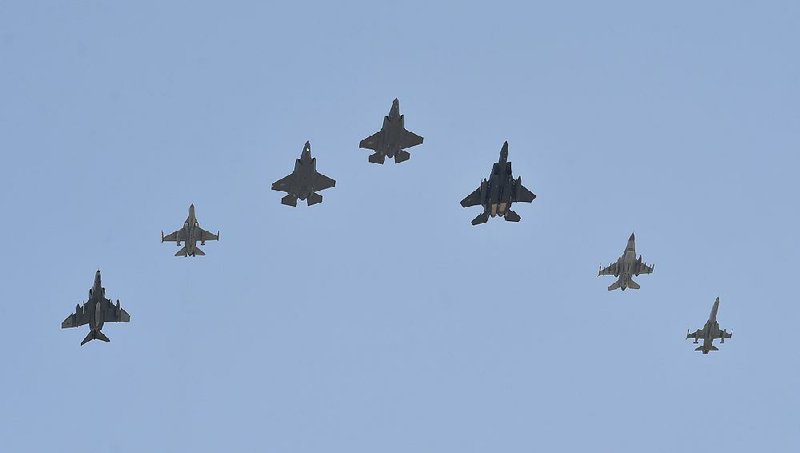SEOUL, South Korea -- President Moon Jae-in of South Korea will meet with President Donald Trump in Washington on April 11, his office announced Friday, as Moon struggles to salvage his role as a mediator between Trump and North Korea's leader, Kim Jong Un.
Moon has devoted his government's diplomatic efforts to facilitating a deal between Trump and Kim on dismantling North Korea's nuclear arms program and building lasting peace on the Korean Peninsula. But those efforts hit a wall when Kim and Trump ended their summit meeting in Vietnam last month without a deal, confirming how far apart they were on the terms of denuclearization.
Moon has since vowed to continue to work as a mediator, with his office saying that Trump had asked for that. But Washington wants Moon to focus on persuading Kim to denuclearize before expecting the United States to lift sanctions. The North, conversely, wants Moon to help ease sanctions first.
"The two heads of state will hold deep consultations with the aim of further strengthening the South Korea-United States alliance and building a peace regime on the Korean Peninsula through complete denuclearization," Moon's office said in a statement announcing the April meeting.
Since the breakdown of the talks in Hanoi, Vietnam's capital, many analysts, including Moon's conservative critics at home, have voiced concern over the future of the U.S.-South Korean alliance. Moon has alarmed conservatives by declaring that he would push for joint North-South Korean economic projects, even though the United States insists this is not the time to ease economic pressure on the North.
A day after the Hanoi summit collapsed, Moon said he would discuss with Washington the possibility of reopening a joint inter-Korean factory park in the North Korean city of Kaesong, as well as resuming South Korean tours of Diamond Mountain, a resort area in the North. He later told his government to look for ways to help advance the dialogue between Washington and the North "through improving South-North Korean relations."
But Washington fears such projects will weaken the enforcement of United Nations sanctions against the North. In Hanoi, Trump "made clear the United States expects complete denuclearization before sanctions relief," said Robert Palladino, deputy spokesman for the State Department in Washington.
Trump's decision to halt the Hanoi summit without a deal shocked Moon as much as Kim, who had taken a 65-hour train ride to Vietnam expecting sanctions relief.
Moon is now desperate to help restart dialogue between Pyongyang and Washington to prevent them from returning to missile and nuclear tests and threats of war, which would destroy the rapprochement Moon has helped build on the peninsula in the past year.
"The situation remains difficult for us following the Hanoi summit," Kim Eui-kyeom, a spokesman for Moon, said Friday. "We fear what might happen should things start falling apart."
South Korea's spy agency told lawmakers in a private briefing Friday that North Korea has nearly completed its work to restore a long-range rocket launch facility that it had partially dismantled last year at the beginning of the nuclear diplomacy, according to Kim Min-ki, one of the lawmakers who attended the meeting.
The lawmaker also cited the National Intelligence Service as saying the North's uranium-enrichment facility at its main nuclear complex remains operational.
During the Hanoi summit meeting, North Korea insisted on a phased rollback of its nuclear program and wanted Washington to lift economic sanctions upfront in return for partially dismantling its nuclear facilities. Washington offered noneconomic incentives, like signing a peace declaration and exchanging liaison offices, but demanded that North Korea fully denuclearize first if it wanted sanctions relief.
Lee Do-hoon, a senior South Korean nuclear negotiator, told reporters Thursday that Seoul was pushing for a "comprehensive deal" and "phased implementation" as a compromise between North Korea and the United States.
But North Korea and the United States remain far apart.
North Korea says it sees no point in holding talks again with the United States unless it changes its stance on sanctions relief. U.S. officials say they are open to talks with the North but are not begging for them.
"We've been fooled enough times," David Stilwell, Trump's nominee for assistant secretary of state for East Asian and Pacific affairs, said at a congressional hearing Wednesday, referring to past talks with the North Koreans.
Information for this article was contributed by Hyung-Jin Kim of The Associated Press.
A Section on 03/30/2019
